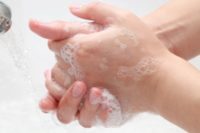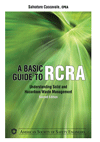Handwashing: A corporate activity

Despite widespread knowledge of the importance of handwashing, there is still room for improvement. A recent study showed that only 31% of men and 65% of women washed their hands after using a public restroom.
Handwashing gives people the opportunity to take an active role in their own health. Most handwashing studies have focused on child care or health care settings. The few that have looked at corporate settings show that promoting clean hands results in fewer employee sick days.
Improving health
Germs can spread quickly. A healthier community means healthier employees. Handwashing education in the community:
- Reduces the number of people who get sick with diarrhea by 31%
- Reduces diarrheal illness in people with weakened immune systems by 58%
- Reduces respiratory illnesses, like colds, in the general population by 21%
Saving time and money
Handwashing is one of the best ways to avoid getting sick and spreading illness to others.
Sick employees are less productive even when they come to work. They may also spread illness to others at work. One recent study promoting clean hands in corporate environments showed:
- Fewer employee illnesses
- Less use of sick days
Helping families and workforces thrive
Employees with healthy children spend less time away from work taking care of sick children, are more productive at work when not dealing with family illness, and get sick less often themselves.
Employers should promote employee handwashing and encourage them to also:
- Teach their children good handwashing technique
- Remind children to wash their hands
- Wash hands with their children
Source: NIOSH www.cdc.gov/healthywater/hygiene/hand/handwashing-corporate.html
Looking for a reprint of this article?
From high-res PDFs to custom plaques, order your copy today!




-Bradley.jpg?height=200&t=1697138155&width=200)
